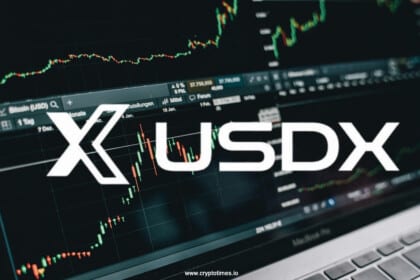Michael Saylor’s famous Bitcoin experiment is facing a revolt, and questions have been raised about the sustainability of his spearheaded corporate treasury model. The aggressive Bitcoin (BTC) accumulation strategy of his firm has done very little for shareholders’ returns.
Saylor’s firm, Strategy, has seen its shares decline by nearly 15% in one month, despite Bitcoin price experiencing a decent decrease of approximately 7% during the period.
As per reports from Fortune, the main concern is the firm’s financial tactics. The new preferred stock from Strategy, which it says is its main way to buy BTC in the future, hasn’t gotten much interest. A recent sale brought in only $47 million, which is far less than Saylor’s usual raises. The company is now issuing common shares to cover the deficit, despite previously promising not to, a change that scared investors.
Saylor’s plan of raising debt and equity for BTC acquisition has often led to market players assigning a premium to MSTR stock. But the recently shifted market dynamics led to Strategy’s premium falling as people lose faith in the model.
Strategy’s Read to Riches
According to BitcoinTreasuries.net, Strategy now manages more than $69 billion in BTC, or 4.7% of Bitcoin’s total supply. But it had started small. Until 2020, Strategy was a small business software company. Its Bitcoin acquisition journey started in 2020. The initial purchase was a significant one, with the company buying 21,454 Bitcoin for $250 million.
Following the move, the firm stopped trading on its traditional earnings and started trading on a multiple of its Bitcoin, which is called mNAV.
The mNAV has seen its share of Ups and Downs. It fell during the Terra-Luna crisis, rose to 3.4 after the U.S. President Donald Trump’s re-election, and is now at 1.59. This time, though, the drop isn’t happening during a crisis; it’s happening during a market boom.
Investors Lose Faith in Strategy’s Model
Many investors are saying that the move is a breach of trust. Issuing shares below mNAV now puts investors in front of a negative flywheel, as a falling stock makes it tougher to buy Bitcoin, which lowers confidence and lowers the premium even more.
Jake Ostrovskis, Principal Analyst on Wintermute’s OTC Desk, said, “The decreasing premium is a natural reaction to competition and alternative ways for traders to gain exposure to digital assets. Additionally, walking back guidance around no share issuance under 2.5x mNAV has forced short-term reassessments of the corporate strategy.”
Also Read: Crypto Execs To Launch $200M Bitcoin Infrastructure SPAC Eyeing IP











